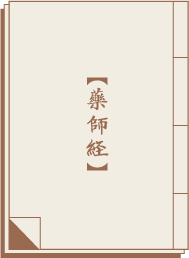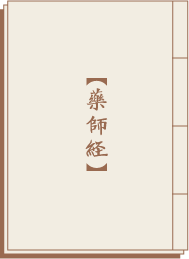





【SPIRITUAL PRACTICES】
Our mind usually changes according to the conditions of the environment, making it difficult to feel at ease. In the hustle and bustle of city life, we are constantly exposed to the cacophony of our surroundings. This becomes a stressor making it gradually harder and harder to slow down. The fragility of the heart usually causes us to lose passion in life. This subtly causes damages to family relationships, work life and the harmony of society as people develop a tendency to perceive their experiences negatively. The accumulated stress causes a chronic sense of exhaustion which is reflected in the body as prolonged tension. The mind and body become disconnected making it challenging to take care of one's needs
According to traditional Buddhist teachings, tea meditation, water offering, Zen calligraphy and walking meditation are all important practices in everyday life, reminding us of the importance of persistence in taming our mind. Even in the face of chaos and confusion, one has to retain awareness to take care of the deluded mind. Through these practices, Tsz Shan Monastery wishes that every visitor can re-establish the habit of taking care of the mind as a way to nurture positive energy, in order to respond to the needs of body and mind in a proactive way. Visitors are most welcome to join these activities when they visit the monastery.
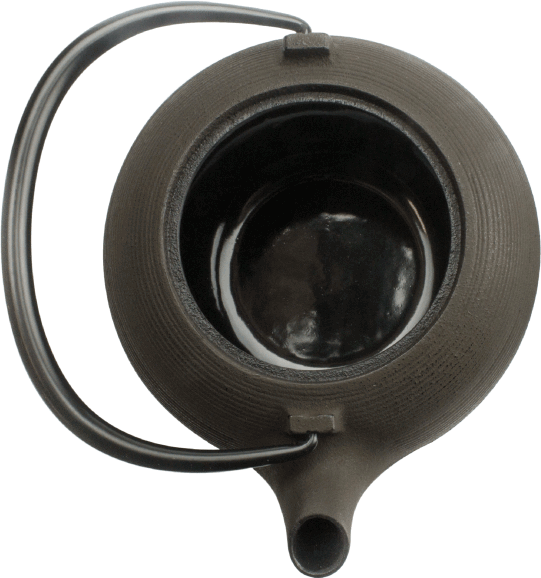
Tea Meditation
— TEA MEDITATION —
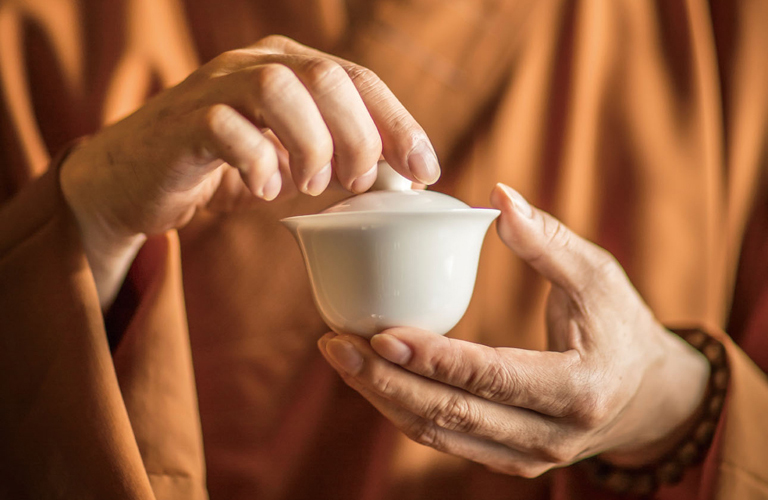
Zen, the practice of mind, strengthens our concentration and consciousness, and therefore enables us to realize the truth of all phenomena. The stability of the mind, nurtured through Zen practice, cultivates wisdom. One can see clearly with vision that, when the mind is stable, Zen is also a way to take care of our heart, to release stress and to heal emotional wounds and allow us to reconnect with a sense of joy and peace.
The essence of Zen, though often described by words, can only be accessed by direct experience. In this light, Zen Master Chao-chou, in the Tang Dynasty, served tea as a deliberate answer to every question asked as a way to remind practitioners that one should not limit learning literally. To have a taste of Zen, one should bring practice into everyday life.
During the tea meditation practice, one can connect to the present moment through the appreciation of the fragrance, the colour, the temperature, the taste and the sound of the brewing of the tea.
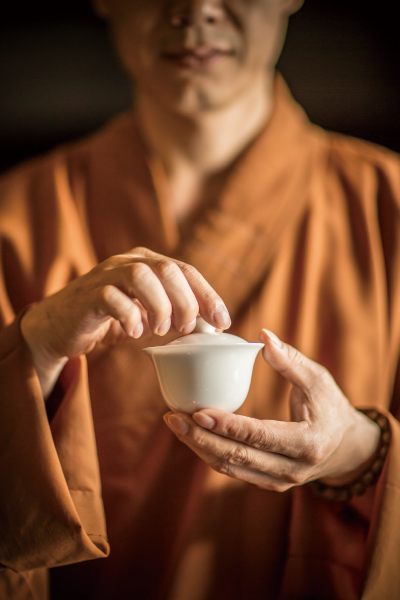
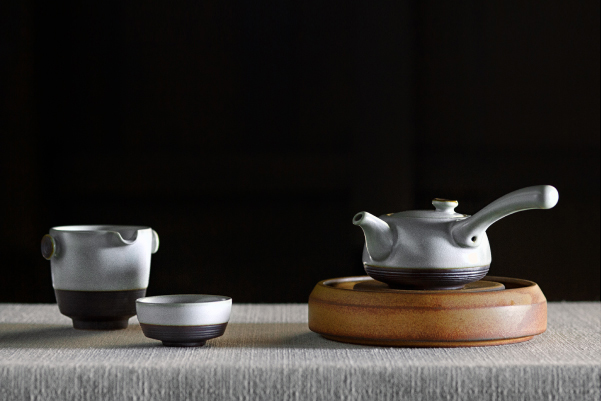
Water Offering
— WATER OFFERING —
Water represents the clarity and purity [or vice versa] of our hearts. We pay tribute to Avalokitesvara (Guan Yin) with our pure hearts, as the gift that represents our respect and gratitude for the spirit of compassion. We can learn to cultivate the wholesome qualities of Avalokitesvara, to care for ourselves, others and all sentient beings with boundless love.
Water is the essential source of life but is usually squandered. The water offering practice serves as a reminder that everything precious in life is indeed something basic and readily accessible. While we are practicing the water offering, we bring ourselves back to our beginner's mind in the present moment. We no longer search from the outside and know how to take care of our real needs.
While we are holding the water bowl and walking on the Compassion Path, we take care of the water as a way to take care of our mind and our heart. The more we can retain our awareness, attention and sense of ease, the better we can avoid spilling the water. A heart pure as water can see with clarity and guide us to walk on the path of happiness.
Zen Calligraphy
— ZEN CALLIGRAPHY —
The essence of practicing Zen Calligraphy is to calm our mind, instead of focusing on the aesthetic sense of the handwriting. Throughout the sutra copying process, participants should let go of their egos and focus on the present moment. By following every single stroke of the character in the sutra, we can observe how our breathing affects our writing rhythm and how our mood affects our breathing. Gradually the sense of agitation and boredom will subside and will help participants to have a better self-understanding.
The other benefit of practicing Zen Calligraphy is to connect with positive thinking. Every single word in the sutra contains precious wisdom and spiritual enlightenment inherited from 2,500 years ago. The continuation of the Zen Calligraphy practice can cultivate a sense of righteousness, facilitating the integration of values, life view and worldview in order to establish the meaning of life.
Online Zen Calligraphy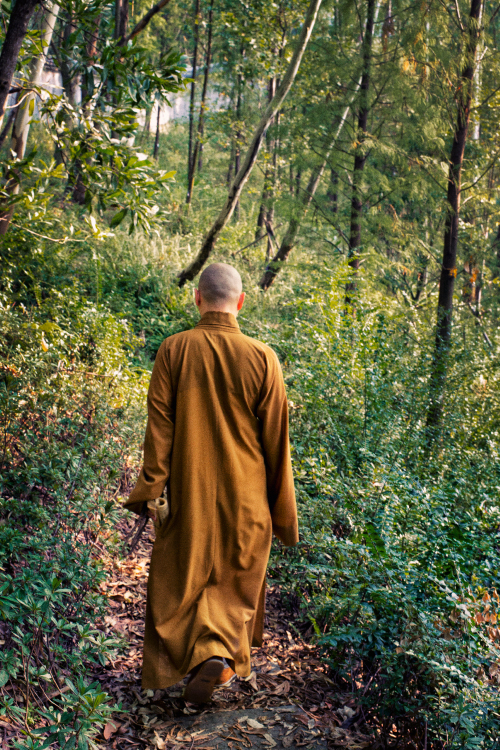
Walking Meditation
— WALKING MEDITATION —

Walking meditation is a training of the mind and the body. By focusing on every step, one can bring the mind back to the body and feel the interaction of our feet with the earth.
Another dimension of the practice is to harmonize inner and outer experiences. While observing the in-breath and out-breath one can also observe the flow of life. It helps us to be aware of the impermanence of all phenomena. From our breathing, the wandering, monkey mind to the magnificence of the harbour and the mountain, they are all co-dependent arising elements and subject to constant change.
With an understanding about the rhythm of life we can stay away from attachments based on distorted views of reality. By doing so one can feel at ease walking on the path, treasuring the present moment.




【PUBLICATION】
- All
- Magazine
- Book
- Newsletter
- Others





【Online Zen Calligraphy】
By following every single stroke of the character in the sutra, we can observe how our breathing affects our writing rhythm and how our mood affects our breathing. Gradually the sense of agitation and boredom will subside and will help participants to have a better self-understanding.







【Svāhā App】
 |
